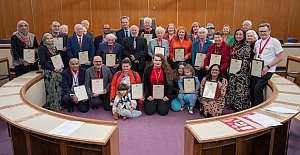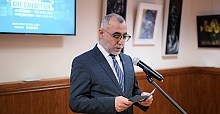Malcolm RifkindMI6Until the 1990s there was no parliamentary scrutiny of Britain’s intelligent services; they reported directly to the Prime Minister and in principle were answerable to him alone. That changed with the Intelligence Agencies Act pf 1994, but as Sir Malcolm Rifkind, Chairman of the Parliament’s Intelligence and Security Committee, explained at an AEJ UK Section lunch at Europe House, until 2010 MPs could only request information from MI5, MI6 and GCHQ. However, the Coalition Government changed all that; these days the agencies are required to provide information to his parliamentary committee and indeed on Thursday next week, for the first time ever, evidence presented by agents will be televised. The Committee reports to Parliament and the Chairman is elected, rather than appointed by the Prime Minister. Moreover, the operations of the security agencies, which were previously not part of the scrutiny remit now are. Only the most sensitive information with national security implications is withheld or else shared on a strictly confidential basis. In the Q&A session after Sir Malcolm’s presentation I highlighted the anger felt in Germany by revelations that the NSA in the US has been tapping Angela Merkel’s phone for the past decade and asked for an assurance that the UK’s special relationship with America in the intelligence sphere did not mean that we are in on that sort of activity with regard to our allies too. Sir Malcolm expressed surprise that the Americans would do such a thing, given the obvious likelihood of negative diplomatic fallout if, as happened, the bugging came to light, and he felt it should have been a matter for a political decision at the highest level, not an initiative of the US secret services, as seems to have been the case. He also explained the use of “selectors”, which are key words or other indicators which a computer system tracking phone calls or emails will recognise and then sound an alarm; otherwise the mas of traffic is not even read or listened to, he said. He obviously takes a dim view of the way that the Guardian newspaper has used some of the material that came to light because of the work of Edward Snowden but insisted that the intelligence work done was essential, especially in combatting terrorism. As it costs the British taxpayer £2 billion a year it had better be worthwhile.

by jonathanfryer on Saturday,
2nd November,
2013


 After Nesil Caliskan a by-election will be held in Jubilee ward in Enfield
After Nesil Caliskan a by-election will be held in Jubilee ward in Enfield Publishing the analysis, Labour’s Cllr Ergin Erbil said Everybody in Enfield deserves basic rights
Publishing the analysis, Labour’s Cllr Ergin Erbil said Everybody in Enfield deserves basic rights Gaza-Israel conflict Statement from Cllr Ergin Erbil, Leader of Enfield Council
Gaza-Israel conflict Statement from Cllr Ergin Erbil, Leader of Enfield Council Cllr Ergin Erbil was elected as the new Leader of Enfield Council
Cllr Ergin Erbil was elected as the new Leader of Enfield Council The European Union called on Turkey to uphold democratic values
The European Union called on Turkey to uphold democratic values Turkish citizens in London said Rights, Law, Justice
Turkish citizens in London said Rights, Law, Justice The Council of Turkish Cypriot Associations Geneva response letter
The Council of Turkish Cypriot Associations Geneva response letter Sustainable Development and ESG, Will This Become the Course for Turkic World
Sustainable Development and ESG, Will This Become the Course for Turkic World Saran Media And Euroleague Basketball Extend Media Rights Partnership for Four More Years
Saran Media And Euroleague Basketball Extend Media Rights Partnership for Four More Years Will Rangers be Jose Mourinho’s next victim?
Will Rangers be Jose Mourinho’s next victim? Jose Mourinho's Fenerbahce face Rangers on Thursday
Jose Mourinho's Fenerbahce face Rangers on Thursday Inzaghi stated that they felt the absence of our national player Hakan Çalhanoğlu
Inzaghi stated that they felt the absence of our national player Hakan Çalhanoğlu Enfield Council at a special awards ceremony
Enfield Council at a special awards ceremony Enfield Council continues to invest in Edmonton, supported by £11.9 million in funding
Enfield Council continues to invest in Edmonton, supported by £11.9 million in funding Survey shows improvements in Enfield Council’s housing services
Survey shows improvements in Enfield Council’s housing services Why is Thames Water in so much trouble?
Why is Thames Water in so much trouble?















